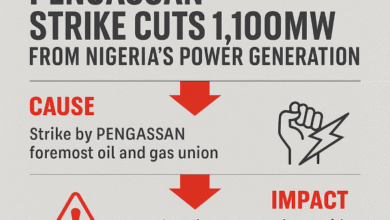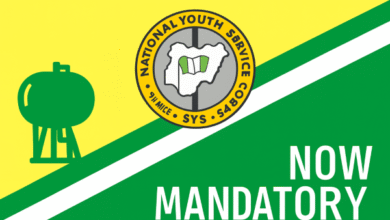Police probe 5 Officers for over alleged extortion of student’s fees
 The Police Command in Lagos State has summoned five police officers alleged to have extorted N155,000 from a student.
The Police Command in Lagos State has summoned five police officers alleged to have extorted N155,000 from a student.
The command spokesman, SP Benjamin Hundeyin, disclosed this on Wednesday on his verified Twitter handle monitored by BRANDPOWER
Hundeyin said that all the officers were summoned to the state headquarters in Ikeja.
He said those summoned included an Assistant Supretendant of Police and four Inspectors, adding that further updates will be provided on the case.
BRANDPOWER reports that Sanni Faruk, a Polytechnic student, had alleged that five police officers attached to Meiran Division extorted N155,000 from him on Sunday.
He alleged that the officers forced him out of a bus at Abule-Egba while on his way to school, handcuffed and took him to Meiran police station.
He claimed that while at the station, he was forced to transfer the money in his bank account to an OPay account before he was released.
He said that the N155,000 taken from him was for the payment of his accommodation in school.
The case was reported to the state police command and the culprits were summoned to respond to the allegations.
There seems to be a deluge of extortion cases in the Nigeria Police force with social media serving as a veritable platform for exposing this sordid crime that seems to have become an unwritten culture among unscrupulous Police Officers.
In July 2022, an inspector, Richard Gele, attached to the Police Mobile Force 77 Squadron, Okene, Kogi State, was exposed on Twitter after being filmed justifying police extortion of members of the public. He was later sacked.
The Punch reports that two officers attached to the Lagos State Police Command were also exposed through social media after they extorted N400,000 from a man, who cried out for help. The cops dragged him to a PoS terminal operator where they withdrew the money from his account. They were also deservedly dismissed. But not all victims report their ordeal through conventional means or social media. A 2016 NOI Polls survey said 76 per cent of victims of human rights violations in Nigeria did not report them.
Knowing they could be easily tracked and identified through banking transfers, some bent police officers have found accomplices in unscrupulous PoS operators.











